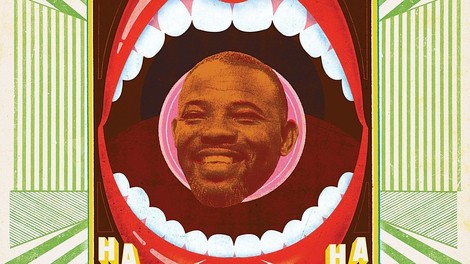Your podcast discovery platform
Curious minds select the most fascinating podcasts from around the world. Discover hand-piqd audio recommendations on your favorite topics.

piqer for: Global finds
Ciku Kimeria is a Kenyan author "Of goats and poisoned oranges" - (https://www.amazon.com/goats-poisoned-oranges-Ciku-Kimeria-ebook/dp/B00HBBWPI6), development consultant, adventurer and travel blogger (www.thekenyanexplorer.com). She writes both fiction and non-fiction focusing on African stories that need telling. She has worked on diverse pieces for various international and local publications including Quartz, Ozy, The East African etc. She has travelled to 45 countries – 16 of them in Africa. 153 countries to go and 63 territories!
"Of goats and poisoned oranges" has been extremely well received in Kenya and beyond. It tells the story of a Kenyan middle aged power couple and their complicated marriage. The novel explores issues of greed, revenge, betrayal and murder. It runs from the 1960s to 2013. It has been described as “Wicked, funny, poignant, wacky, human, a big ball of fun and danger”, “A unique and captivating book”, “Fun and intriguing”, “Impossible to put down once you start reading.”
She recently moved to Dakar, Senegal from Kenya to work on her second novel. She also works at as the Africa Communication Manager at a leading global strategy consulting firm.
She holds a B.S. in Management Science from MIT with minors in Urban Planning and International development studies.
Is Nigeria Ready For Its Own Version Of "The Daily Show?"
I remember the last years of the former Kenyan President Moi's time in power. I had grown up knowing only one president and had believed we would never have another during our lifetime. Such was how much we feared this president who was known to crush his enemies and stifle dissent — usually by sending the "culprits" to the infamous Nyayo torture chambers concealed in one of the main government buildings in the central business district of Nairobi.
The president was said to be immortal — one never spoke ill of him even among friends, and definitely one never ever made fun of him. That was up until the comedy show Redykulass started in the late 1990s. From the comfort of our living rooms we laughed, but we also wondered how long it would be before the long arm of the law caught up with these poor fellows and tossed them into the torture chambers. Luckily that day never came, and eventually the winds of change got Kenya new leadership once President Moi was ousted by a grand coalition in 2002.
In this article, a new satire series tries to use the same transformative power of comedy to strengthen Nigerian democracy. Along the way of setting up there are several challenges that make one wonder if the Daily Show model of comedy can succeed in the Nigerian context.
[Pilot Media Initiatives] P.M.I. was trying to make a polished TV show using equipment that, as one member of the team said, you might find at a U.S. community college. The technical staffers assigned to the show were overworked, and were hard to reach when they weren’t on set. There were also cultural differences. The appearance of a bunch of demanding white people and their handpicked team of young writers had caused some tension.
The article does a great job of dissecting the realities of using comedy as a tool to highlight the ridiculous issues in society and governance, the need to customize comedy to the local context, and the important role the show and comedy can play if everything can only align well.
